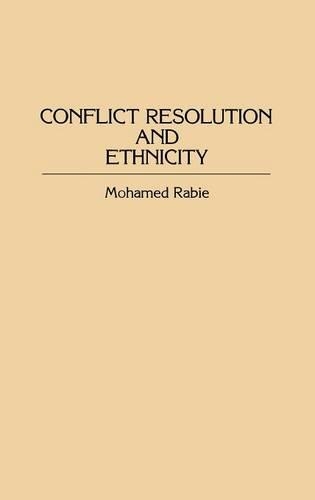
Conflict Resolution and Ethnicity
(Hardback)
Publishing Details
Conflict Resolution and Ethnicity
By (Author) Mohamed Rabie
Bloomsbury Publishing PLC
Praeger Publishers Inc
30th August 1994
United States
Classifications
Tertiary Education
Non Fiction
Peace studies and conflict resolution
303.69
Physical Properties
Hardback
240
Description
This book follows an approach that combines the viewpoints of both the realists and the idealists in dealing with the issues of conflict and peace. The ideas, models, and peace processes it proposes take into consideration the imperatives of real life without abandoning the dreams of a more peaceful and just world. The shared homeland model, as developed here, provides hope that ethnic conflict can be resolved in a manner that satisfies a group's need for recognition and cultural particularism, as well as its need for economic development, security, and regional activity. The book also defines and integrates steps of political conflict resolution into one theory that produces one of the first textbooks on the subject.
Reviews
In this informed, analytical, and extended essay Rabie plumbs the challenges that ethnicity adds to the process of conflict resolution. Written clearly for the layperson but drawing soundly from the extensive literature in the area of conflict resolution, Rabie builds his analysis with great care and develops a framework that might be applied to diverse conflicts in which ethnicity plays a major role. A useful addition to upper-division undergraduate and graduate international relations and peace studies collections; blends theoretical and practical concerns with great insight. Highly recommended. * Choice *
Author Bio
Mohamed Rabie is an author and a former professor of economics. He studied in Jordan, Egypt, Germany, and the United States and holds a PhD in economics from the University of Houston. He has taught at several Arab and American universities, including Kuwait University and Georgetown University in Washington, D.C. Dr. Rabie has published 12 books in English and Arabic and over 40 papers. He has participated in over 60 worldwide seminars and conferences dealing with economic, political and security issues as well as the Arab-Israeli conflict. Dr. Rabie has also been a frequent participant in political dialogue groups and conflict resolution workshops.
